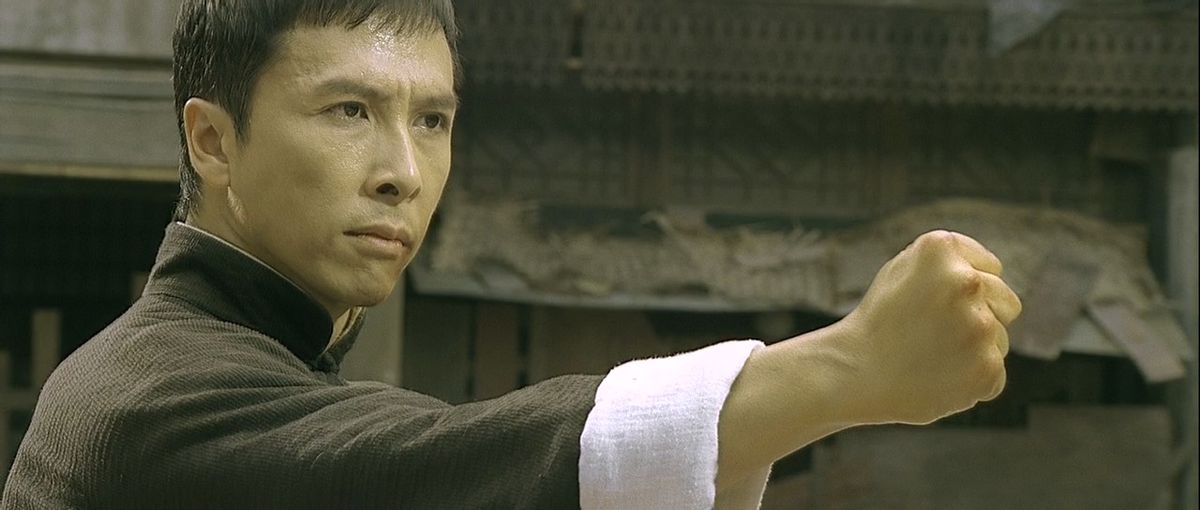I'm not qualified to judge whether the Hong Kong action flick "Ip Man" belongs among the top martial-arts films ever made, an opinion that's been gaining credence as the movie bounced around the world over the last two years. But there can be no doubt that director Wilson Yip has crafted a gripping, rousing, beautifully structured yarn, built around a calm but charismatic star performance by Donnie Yen and magnificent action sequences choreographed by the legendary Sammo Hung.
Ip Man (aka Yip Man) was a historical figure, who spent much of his later life as a revered Hong Kong kung-fu master who popularized the Wing Chun martial-arts style he brought with him from the southern Chinese city of Foshan. Ip taught many students who in turn taught many more, but he is most famous as the principal teacher and mentor of a San Francisco-born kid named Lee Jun-fan, better known to the world as Bruce Lee. Absolutely none of this is in the movie, although the Lee connection is mentioned in the closing credits. "Ip Man" is less a biopic than a heavily fictionalized legend, with a resolute, ass-kicking hero who stands for Chinese resistance to the notoriously cruel Japanese occupation of the late 1930s.
So be advised that almost none of what you see in "Ip Man" actually happened, and in some sense that's too bad, because the real Ip sounds like a fascinating figure. He was a pre-revolutionary police officer, a reported opium addict, and a refugee who fled the Communist takeover in 1949 for a new life in British Hong Kong. But all those factors make him undesirable as the hero of a work of rousing nationalist agitprop. So instead we get Yen's remarkable performance as a man of prodigious Buddhist-Confucian composure and tranquility, who goes from wealth to poverty to near-slave status, and finally must fight a public gladiatorial match against a sinister Japanese general and karate master (Hiroyuki Ikeuchi, who imbues what could have been a cardboard villain role with dignity and grace).
If director Yip and screenwriters Edmond Wong and Chan Tai-lee have created a full-blown myth out of a few scraps of history, it's a pretty damn exciting one. Ip's transformation from diffident bourgeois to symbolic man of the people is rendered as compelling period melodrama, and cinematographer O Sing-pui captures both the film's deluxe interiors and Hung's thrilling fight sequences in gorgeous widescreen imagery. The outstanding supporting cast includes Simon Yam as Ip's factory-owner best friend, Fan Siu-wong as a comic-relief martial-arts rival, and Lam Ka-tung as a local cop who becomes a Japanese collaborator. There are definitely better kung-fu flicks in terms of pure action spectacle, but "Ip Man" delivers as tremendous entertainment even if you don't much care about martial arts.
It's a testimonial to the global impact of "Ip Man" that the movie is finally getting an American theatrical release (at least in New York, and possibly elsewhere) even though you can already buy it on DVD, in a deluxe two-disc set loaded with extras. Of course that's unusual, but it's the kind of thing we'll see more and more for niche or "specialty" films. Watching movies on the big screen isn't dead, and isn't dying; but it doesn't always happen first. (Yen reprises the role in "Ip Man 2," which opened to rave reviews last spring in Hong Kong and recently premiered at Fantastic Fest in Austin, Texas. A third film, focused on Ip's relationship with Bruce Lee, is under discussion.)
"Ip Man" is now playing at Cinema Village in New York, with a national rollout to follow. It's also available on DVD.



Shares